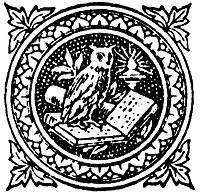Marginalia
Home
About Marginalia
Current Issue
Archived Issues
Notes to Contributors
Links to Other Online Journals
Marginalia -- The Website of the MRG
Parker was responsible for the Elizabethan Settlement and was, in effect, the creator of the Anglican Church as a legal entity, in the form which still exists. He edited the Thirty-Nine Articles (1563 and later) and the so-called Bishops' Bible (1568), the first officially-commissioned version of the Bible in the English language. In its time the new Church of England was regarded as utterly revolutionary. Among other clauses, it denied the authority of the pope, after almost a thousand years of jurisdiction in England, and it insisted on the Scriptures and religious services being in the English language. In the lifetime of Parker and many of his contemporaries, the mere possession of a Bible in English had been a capital offence, as in the case of Richard Hunne. For many members of the general public in the 1560s, the whole idea of a Church of England must have seemed inconceivable.
Often the most effective way of achieving any revolution, whether social or ideological, is to argue that it is no more than a restoration of an earlier order. In 1568 Parker obtained licence from the Privy Council to gather into his own possession the oldest books he could find in England in order to justify the new Church. He was looking for precedent. He convinced himself that Pope Gregory, sending missionaries to England in 597, had intended to establish an independent church, under the authority of the king. He believed that Anglo-Saxon England represented a golden period of English culture, brought to a disasterous end in 1066. To an extent he was right, for it was not really until the reforms of Gregory VII, pope 1073-85, that the papacy took control of western Christendom.
Parker delighted in acquiring late tenth-century copies of the Gospels in Old English (MS 140), which he had printed in 1571, and of King Alfred's translation of the Pastoral Care (MS 12); and when doubters muttered at the impropriety of the new English-speaking Church, Parker could assure them that this was no more than a restoration of the way it used to be, before the Conquest. This is really where the Parker Library is so important now. About a quarter of all extant manuscripts in Old English are in the collection, and about ten percent of books of any kind known to have been in England before 1066. The earliest is the sixth-century Gospels of Saint Augustine himself (MS 286) and they include, for example, the primary copy of the Anglo-Saxon Chronicle (MS 173), written in Old English in the court of King Alfred in Wessex. As a collector, Parker was at least a generation ahead of Thomas Bodley (1545-1613) and Robert Cotton (1571-1631), whose libraries were to become the core of the Bodleian and the British Library, and he usually had first choice from the ancient cathedrals and the recently scattered monasteries.
The Parker Library is now a remarkable resource for the study of the beginnings of the English language, of which it includes nearly all the oldest manuscripts, and for early English history, art, theology, music, science, travel and even alchemy (an unexpected interest of Parker's). It includes most of the earliest records of English law, and some graphic examples of the legal process in action, including the trial records of Joan of Arc (MS 197) and the daily prison expenses of Cranmer and the original bill for burning him in Oxford in 1556 (MS 128).
In 1574, a year before his death, Parker arranged for the safe-keeping of his collection in Corpus, his former college. The indenture of the bequest includes various conditions of public access and the requirement of an annual audit. If more than six large or twelve small books should ever go missing through careless neglect, the whole library would be forfeit and sent instead to Gonville and Caius College. If they should, in turn, lose an equivalent number, the books would go to Trinity Hall. Probably mainly for this reason the Parker Library has remained scrupulously intact, is still open daily to appropriate readers, and it now comprises one of the most important and interesting research libraries in Cambridge.
Christopher de Hamel, The Parker Library
 Previous |
 Next |

